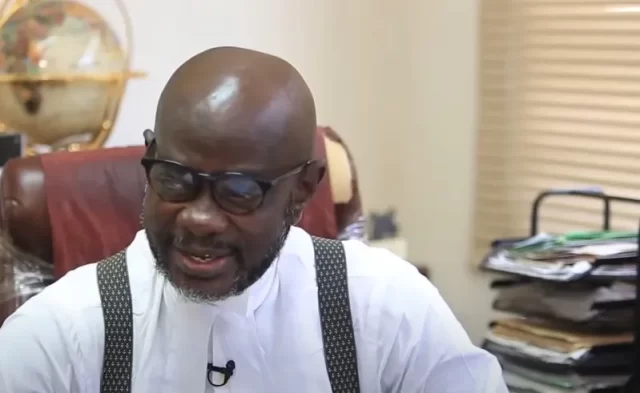New Patriotic Party (NPP) Director of Legal Affairs Frank Davies has cautioned against the politicization of constitutional procedures to remove Chief Justice Gertrude Torkornoo, stressing that public discourse risks undermining judicial integrity.
Speaking on JoyNews’ Newsfile, Davies clarified that while Ghana’s constitution permits citizens to petition for a judge’s removal, the current debate has been distorted by “influential voices” muddying the process.
“It’s not the removal, per se, of a Chief Justice which is the problem. The aberration is when issues are so muddied by persistent refrains from people who should know better,” Davies stated. He emphasized that Article 146 of the 1992 Constitution provides a clear framework for addressing judicial misconduct, requiring evidence-based assessment rather than politicized rhetoric.
Three petitions seeking Justice Torkornoo’s removal, citing alleged abuse of office and misconduct, were submitted to President John Mahama and forwarded to the Council of State for review. The claims include accusations that she advised the president on judicial appointments, issued controversial rulings involving the Speaker of Parliament, and misapplied GH¢75,000 in funds. Justice Torkornoo has formally responded to the allegations, meeting an April 7 deadline to submit her defense.
The Council of State must now determine whether the petitions warrant a full inquiry by a five-member committee, as mandated by law. Davies underscored the need to separate legitimate constitutional processes from partisan agendas, stating, “If there’s a valid basis for removal, it should not be too much. But the conversation must remain factual, not speculative.”
The debate underscores tensions over judicial independence in Ghana, with critics warning that politicized removal efforts could erode public trust. Similar controversies have arisen in past administrations, where attempts to oust senior judges were often perceived as executive overreach. Legal experts stress that adherence to Article 146’s stringent standards requiring proof of “stated misbehavior or incompetence” is critical to preserving the judiciary’s role as a neutral arbiter.
As the Council of State deliberates, stakeholders urge transparency to ensure the process reinforces, rather than weakens, Ghana’s democratic institutions. The outcome will test the judiciary’s resilience against external pressures and set a precedent for balancing accountability with the separation of powers.
Send your news stories to newsghana101@gmail.com
Follow News Ghana on Google News

















